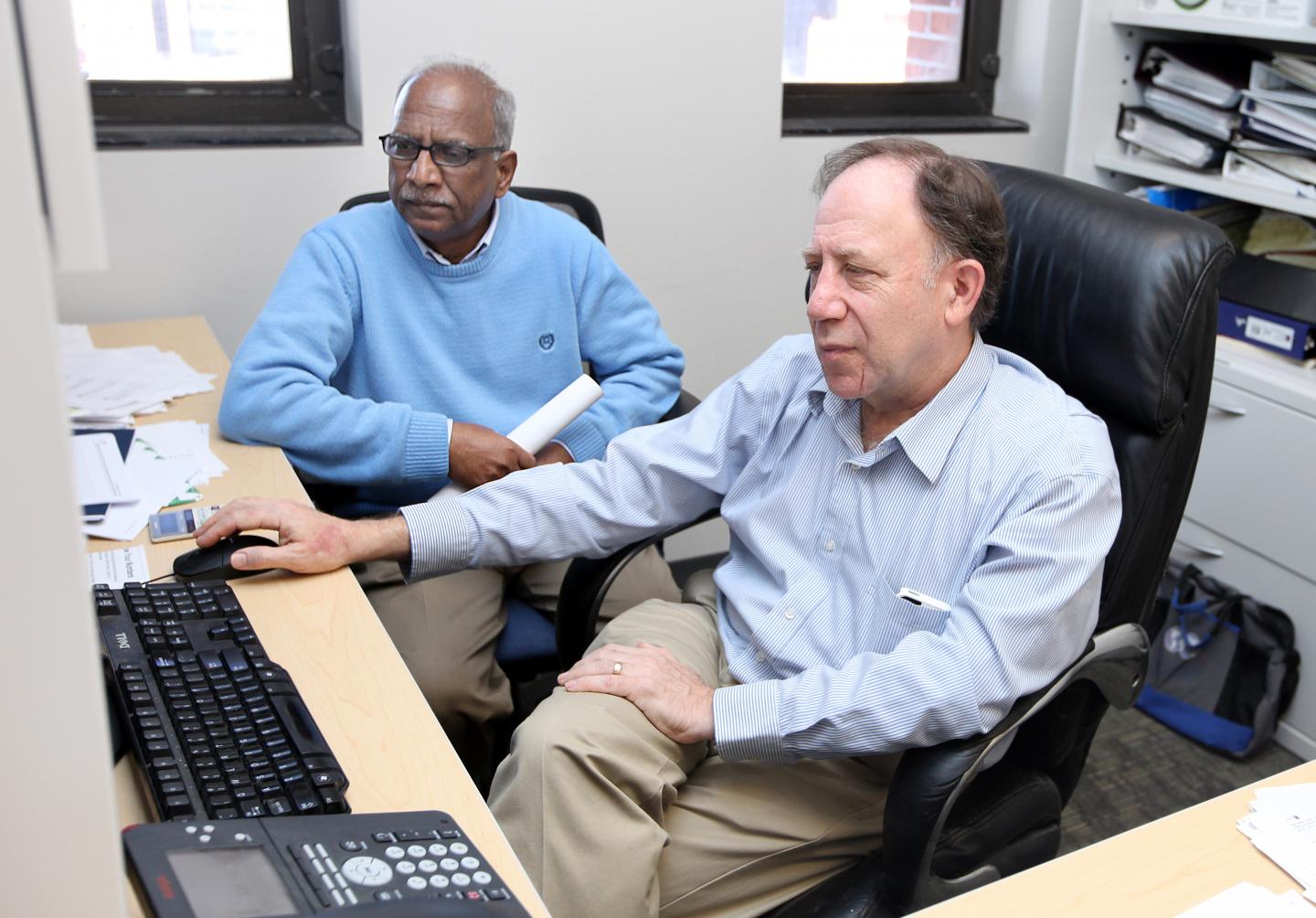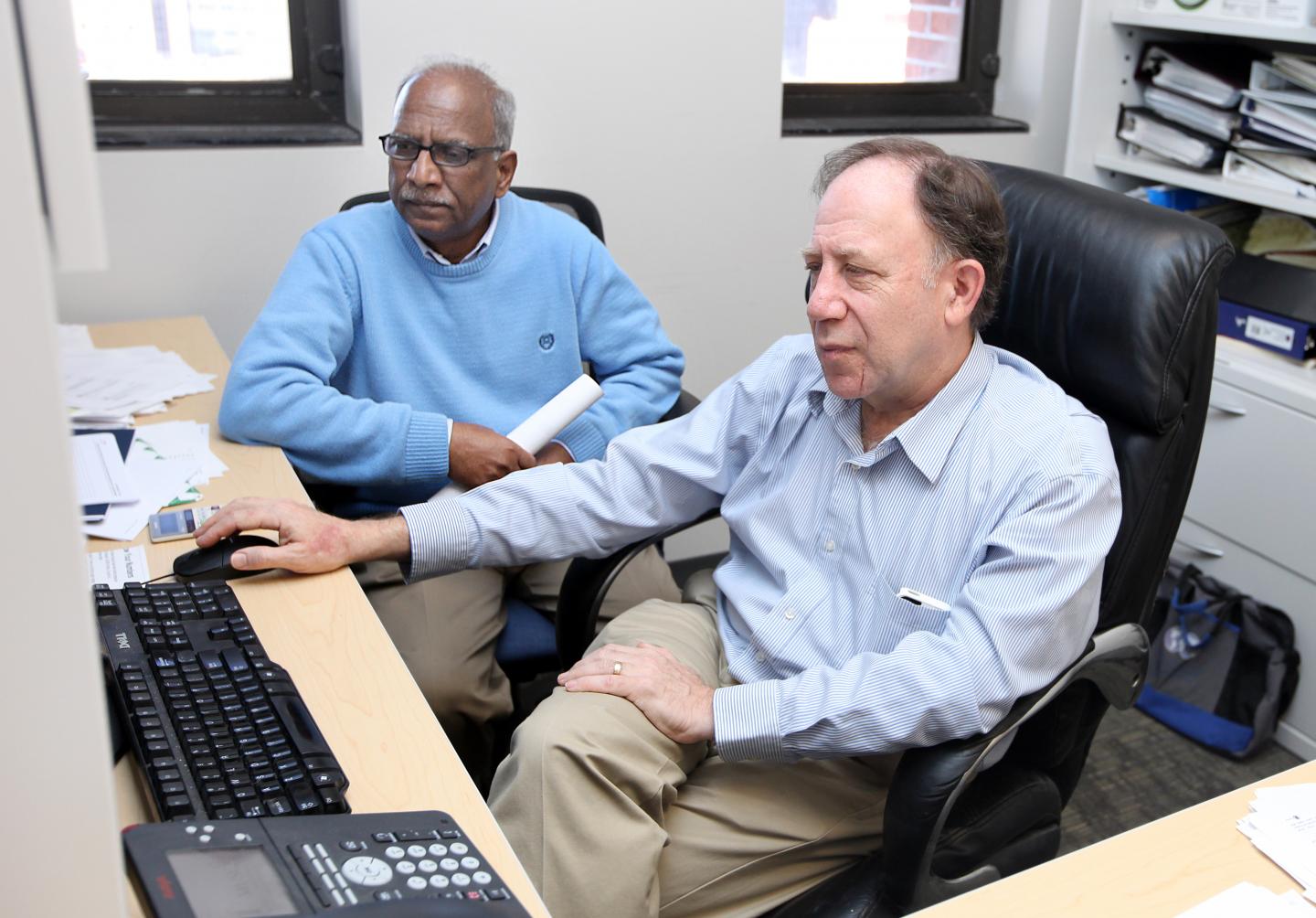
Credit: Medical University of South Carolina
Cardiac fibrosis, an abnormal thickening of the heart wall leading to congestive heart failure, was not only halted but also reversed by a caveolin-1 surrogate peptide (CSD) in a preclinical model, report researchers at the Medical University of South Carolina (MUSC) in an article published online on January 23, 2017 by Laboratory Investigation. CSD was able to decrease the fibrotic ventricular wall thickness and improve heart function, all with apparently no toxicity and minimal off-target effects.
The MUSC research team included pulmonary fibrosis investigators Stanley Hoffman, Ph.D., and Elena V. Tourkina, Ph.D., who had previously shown caveolin-1's anti-fibrotic properties in the skin and lung. For this project, they joined forces with MUSC congestive heart failure researchers in the laboratory of Dhandapani Kuppuswamy, Ph.D., to show that caveolin-1's anti-fibrotic properties in skin and lung also hold in yet another organ: the heart.
More than a decade ago, Hoffman and Tourkina noted that the skin and lung cells producing excess collagen in scleroderma, leading to fibrosis, were deficient in caveolin-1. Supplementing these cells with a caveolin-1 surrogate peptide (CSD; caveolin-1 scaffolding domain peptide), a truncated version of the original compound, showed a reversal of fibrosis.
MUSC has obtained a patent to test CSD on fibrotic diseases across organs which they have licensed to Lung Therapeutics, Inc. The company intends to support research involving CSD and fibrosis in the Hoffman and Kuppuswamy laboratories.
Kuppuswamy's laboratory focuses on hypertrophic overgrowth and profibrogenic signaling of the cardiac muscle in pressure overload. Fibrosis that develops under these conditions is detrimental to the heart's pumping efficiency as it causes a stiffer and less compliant cardiac muscle, leading to the progression of congestive heart failure.
"Currently, there are no therapeutic options for congestive heart failure that specifically target the causative cardiac fibrosis. Everyone is looking for this," said Kuppuswamy, an associate professor at the Gazes Cardiac Research Institute.
According to the Centers for Disease Control and Prevention, heart failure affects almost six million Americans, and half of those with heart failure die within five years of diagnosis.
To mimic the cardiac fibrosis typical of heart failure, Kuppuswamy used a transverse aortic constriction mouse model to create pressure overload hypertrophy that then led to the development of fibrosis. Treatment with CSD not only halted the progression of the cardiac fibrosis but also led to its reversal with improved ventricular function.
Although promising, these findings are preliminary — only reflecting outcomes in mice. The researchers plan to run larger preclinical studies using the same approach to generate more definitive data, and if all goes as expected, to move forward to the large-animal studies necessary to take a compound forward into clinical trial. They also note that they are testing CSD in a different congestive heart failure model, the angiotensin II infusion model, which also affects the kidneys. CSD is showing promising anti-fibrotic effects on both the heart and the kidneys in this model.
"Fibrotic diseases are related to each other no matter the affected organ. In our case, we were studying lung and skin fibrosis," explained Hoffman. "We got the opportunity to test the same reagent in heart fibrosis and, lo and behold, it worked even better than in lung and skin fibrosis models. And there are plenty of other diseases with a fibrotic element to them where we think the CSD peptide might be useful."
The co-authors thank the MUSC College of Medicine Enhancement of Team Science (COMETS) for helping support this work. Without this support, this work would not have been possible.
###
About MUSC
Founded in 1824 in Charleston, The Medical University of South Carolina is the oldest medical school in the South. Today, MUSC continues the tradition of excellence in education, research, and patient care. MUSC educates and trains more than 3,000 students and residents, and has nearly 13,000 employees, including approximately 1,500 faculty members. As the largest non-federal employer in Charleston, the university and its affiliates have collective annual budgets in excess of $2.2 billion. MUSC operates a 750-bed medical center, which includes a nationally recognized Children's Hospital, the Ashley River Tower (cardiovascular, digestive disease, and surgical oncology), Hollings Cancer Center (a National Cancer Institute designated center) Level I Trauma Center, and Institute of Psychiatry. For more information on academic information or clinical services, visit musc.edu. For more information on hospital patient services, visit muschealth.org.
Media Contact
Heather Woolwine
[email protected]
843-792-7669
@MUSChealthPN
http://www.musc.edu
############
Story Source: Materials provided by Scienmag





